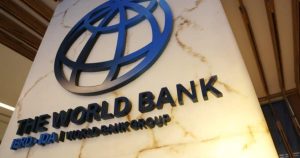
The Federal Government of Nigeria is currently servicing one hundred and eight World Bank loans worth $14.12 billion.
According to Punch, the oldest loan being serviced was approved as far back as 1989 under Gen. Ibrahim Babangida, while the most recent loan being serviced was approved in 2018 under the former president, Muhammadu Buhari.
The oldest loan is the $100.9m Multistate Agricultural Development Project (03), which was approved to support the implementation of the state-wide Agricultural Development Projects, to increase food/crop production and the income of small farmers.
According to the platform, although the principal amount for the project was placed at $100.9m, a total of $106.7m was disbursed.
Loans approved in 2018 were being serviced, disbursing funds, as they were categorized under ‘Disbursing & Repaying’.
One of such loan was the $125m fiscal governance and institutions project, which was approved on June 27, 2018.
It was also noted that about $40.17m had been disbursed under this loan project.
Another loan project under disbursing and repaying was the $750m Fiscal Governance and Institutions Project, which was approved on June 27, 2018.
It was disclosed that $737.13m had been disbursed under this loan.
There was an additional $750m loan approved on December 14, 2020, under this loan project.
However, this second approval was undergoing disbursement with no repayment required yet.
It was noted that the $364m loan and the $122m loan approved in 2018 under the Electricity Transmission Project were currently being repaid while disbursement is still ongoing.
The platform disclosed that about 68 loans worth about $4.79bn had been fully repaid over the years.
The International Bank for Reconstruction and Development and the International Development Association, which make up the World Bank, had, over the years, advanced loans to Nigeria.
The IBRD lends to governments of middle-income and creditworthy low-income countries, while the IDA provides concessionary loans – called credits – and grants to governments of the poorest countries.
Nigeria is usually expected to begin servicing a number of the loans after five years of approval and up to over 30 years.
Since the loans were usually concessional financing, they were below-market-rate finance, and cheaper to service.
For instance, the $800m loan from the World Bank to provide post-petroleum subsidy palliatives for over 50 million Nigerians attracts a maximum commitment charge rate of one-half of one per cent per annum on the Unwithdrawn Financing Balance and a service charge of three-fourths of one per cent per annum on the withdrawn credit balance.
The post Nigeria Servicing 108 World Bank Loans Worth $14 Billion – Report appeared first on Naija News.


